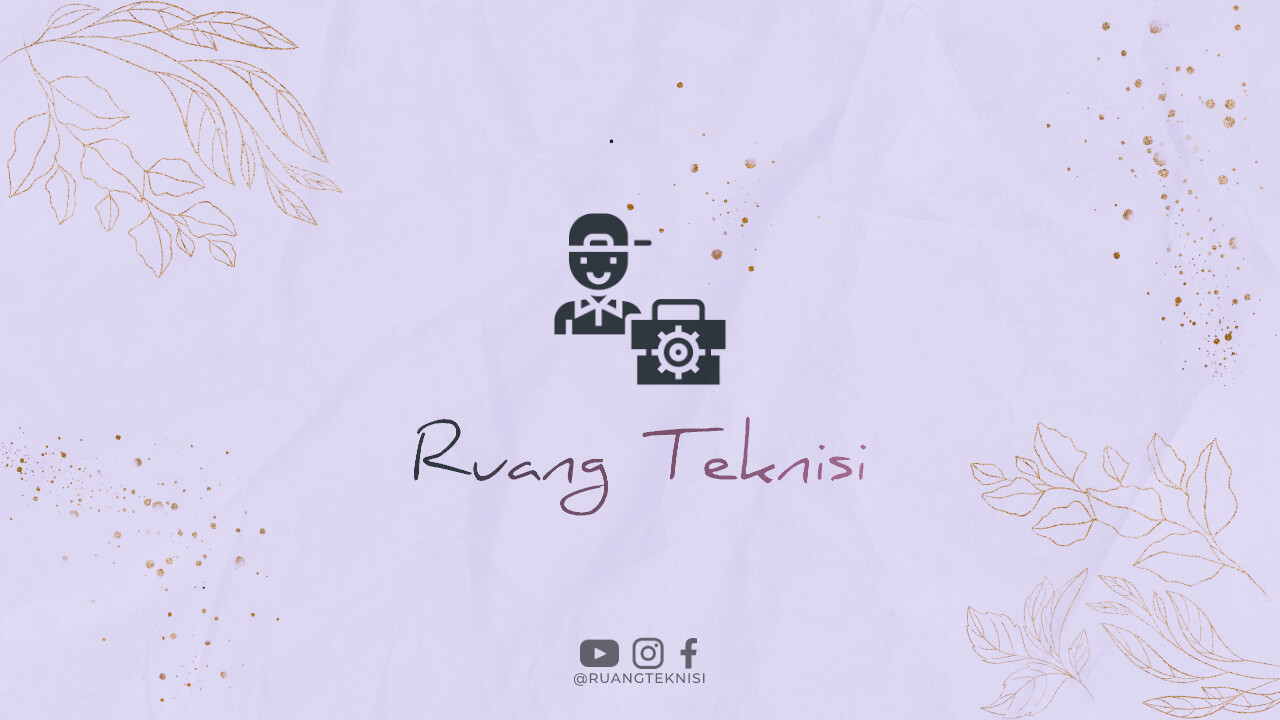Introduction
Entering university is a significant milestone in one’s academic journey. To secure admission to the university of your dreams, it is crucial to excel in the admission tests. These tests assess your knowledge, skills, and aptitude, providing universities with a basis for selection. In this article, we will discuss strategies that can help you achieve excellence in admission tests and increase your chances of getting into your desired university.
Understanding the Test Format
Before diving into preparation, it is essential to understand the format of the admission test. Familiarize yourself with the types of questions, time constraints, and scoring criteria. This understanding will enable you to plan your preparation effectively and allocate time to each section accordingly.
Types of Questions
Admission tests can include various types of questions such as multiple-choice, short answer, essays, and problem-solving. Each question type requires a different approach and level of preparation. Understanding the different question formats will help you tailor your study plan accordingly.
Time Constraints
Most admission tests have strict time limits for each section. It is crucial to practice time management skills to ensure you can complete all the questions within the given time. Familiarize yourself with the time allocated for each section and practice solving questions under timed conditions.
Scoring Criteria
Knowing how the test is scored can help you prioritize your preparation. Understand the weightage given to each section or question type and focus your efforts accordingly. Some tests may have negative marking for incorrect answers, so it is essential to strategize your approach to minimize errors.
Develop a Study Plan
A study plan is crucial for organized and effective preparation. Break down the syllabus into smaller topics and allocate specific time slots to study each one. Create a realistic timetable that allows for regular revision and practice. Stick to your plan to ensure comprehensive coverage of the test material.
Topic Breakdown
Divide the test syllabus into smaller topics or chapters. Assign specific days or weeks to cover each topic, depending on its complexity and importance. This breakdown will help you stay organized and ensure that you cover all the essential areas.
Allocate Study Time
Allocate dedicated time slots for studying each topic. Consider your strengths and weaknesses while deciding how much time to spend on each area. Give more time to challenging topics or sections that carry higher weightage in the test. This balanced allocation of study time will ensure comprehensive preparation.
Revision and Practice
Include regular slots for revision and practice in your study plan. Revision helps reinforce your understanding of the topics, and practice allows you to apply your knowledge to solve different types of questions. Regular revision and practice are essential to improve retention and accuracy.
Utilize Official Study Material
Most universities provide official study material, sample questions, and past papers. These resources are invaluable as they give you an insight into the test’s style and difficulty level. Make sure to make use of these materials and practice under timed conditions to simulate the actual test environment.
Official Study Guides
Check if the university or test conducting authority offers official study guides or textbooks. These resources are tailored specifically for the test and often cover all the necessary topics. Study guides provide comprehensive explanations and examples, making them an excellent starting point for your preparation.
Sample Questions
Official sample questions give you a glimpse into the types of questions you can expect in the actual test. Solve these questions to get familiar with the test format and difficulty level. Analyze your performance to identify areas that need improvement and focus your subsequent preparation accordingly.
Past Papers
Past papers are an invaluable resource as they provide a real-life simulation of the test. Solve previous years’ papers under timed conditions to experience the test environment and practice time management. Analyze your performance to identify patterns and areas that require additional attention.
Take Mock Tests
Mock tests are an excellent tool for evaluating your progress and identifying areas of improvement. Allocate specific days for taking full-length mock tests and analyze your performance afterward. Identify your strengths and weaknesses and focus on improving the latter through targeted practice.
Simulate Test Conditions
When taking mock tests, ensure that you create an environment similar to the actual test. Find a quiet place, set a timer, and strictly adhere to the test’s time limits. This simulation will help you get accustomed to the pressure and time constraints of the real test.
Analyze Performance
After completing a mock test, thoroughly analyze your performance. Identify the types of questions or sections where you faced difficulties. Look for patterns in your mistakes and make note of areas that need improvement. Use this analysis to adjust your study plan and focus on weak areas.
Targeted Practice
Based on your mock test analysis, create a targeted practice plan. Focus on specific question types or topics where you struggled during the mock tests. Solve additional practice questions and seek guidance from teachers or mentors to improve your understanding in these areas.
Seek Guidance
Don’t hesitate to seek guidance from teachers, mentors, or professionals who have experience with admission tests. They can provide valuable insights, suggest effective study techniques, and help you understand difficult concepts. Utilize their expertise to enhance your preparation and boost your confidence.
Teachers and Mentors
Consult your teachers or mentors who have experience guiding students through admission tests. They can provide personalized guidance based on your strengths and weaknesses. Seek their advice on study materials, effective learning strategies, and exam-taking techniques.
Professional Coaching
If you feel the need for additional guidance, consider enrolling in professional coaching classes or online courses. These programs are designed specifically for admission test preparation and provide structured guidance and practice materials. Choose reputable coaching centers or online platforms with a track record of success.
Peer Study Groups
Forming study groups with peers who are also preparing for admission tests can be beneficial. Discuss difficult concepts, solve practice questions together, and share study materials. Peer study groups provide an opportunity to learn from others, gain new perspectives, and motivate each other during the preparation process.
Develop Time Management Skills
Time management is crucial during admission tests. Practice solving questions quickly and accurately. Use techniques like skimming passages, identifying key information, and using elimination strategies to save time. Regular practice and timed exercises will improve your speed, ensuring you can attempt all questions within the given time limit.
Pace Yourself
During practice sessions, consciously work on maintaining a steady pace. Solve questions with an appropriate balance of accuracy and speed. Avoid spending too much time on a single question, especially if it seems challenging. Learn to manage your time effectively by allocating specific time limits to different sections or question types.
Time-Saving Techniques
Learn and practice time-saving techniques that can help you solve questions quickly. These techniques include skimming passages to grasp the main idea, underlining or highlighting key information, and using elimination strategies to narrow down answer choices. Regularly incorporating these techniques into your practice will improve your efficiency.
Practice Timed Exercises
Regularly practice timed exercises to develop a sense of time pressure and improve your speed. Set a timer and solve questions within the allocated time. Initially, focus on accuracy, but gradually work on reducing the time taken for each question. With practice, you will become more comfortable with the time constraints of the actual test.
Focus on Weak Areas
Identify your weak areas through mock tests and practice questions. Devote additional time to these topics to strengthen your understanding. Seek clarification from teachers or refer to additional study materials if required. Consistent effort in improving your weaknesses will lead to overall improvement in your test performance.
Identify Weak Areas
Analyze your mock test performance to identify the topics or question types where you consistently struggle. Look for patterns in your mistakes and make note of the specific areas that need improvement. Identifying weak areas is the first step towards targeted preparation.
Additional Study Materials
If you find that your study materials are not providing sufficient clarity on your weak areas, consider referring to additional resources. Look for textbooks, online tutorials, or video lectures that explain the concepts in a different way. Seek help from teachers or mentors to gain a better understanding of these challenging topics.
Focused Practice
Once you have identified your weak areas, allocate additional time for focused practice in those specific areas. Solve more practice questions related to these topics and attempt challenging exercises. Seek guidance from teachers or mentors to clarify any doubts or misconceptions you may have.
Enhance Writing Skills
Many admission tests include a written component. To excel in this section, work on enhancing your writing skills. Practice writing essays, reports, and summaries regularly. Pay attention to grammar, vocabulary, and coherence. Seek feedback from teachers or professionals to improve your writing style.
Essay Writing Practice
Regularly practice writing essays on various topics. Focus on structuring your essays effectively, organizing your thoughts logically,and presenting arguments coherently. Pay attention to grammar, punctuation, and vocabulary usage. Practice writing essays within the given time limit to simulate the test conditions.
Vocabulary Enhancement
Expand your vocabulary by reading extensively and learning new words. Make a habit of noting down unfamiliar words and their meanings. Use these new words in your writing to improve your vocabulary skills. Additionally, practice using synonyms and antonyms to add variety to your language.
Grammar and Sentence Structure
Brush up on your grammar and sentence structure skills. Review common grammar rules and practice identifying and correcting errors in sentences. Pay attention to subject-verb agreement, tense usage, and sentence coherence. Seek guidance from teachers or use online resources to improve your grammar skills.
Seek Feedback
Share your written work with teachers, mentors, or professionals and ask for their feedback. Their insights can help you identify areas of improvement and refine your writing style. Take their suggestions constructively and work on implementing them in your practice sessions.
Stay Updated with Current Affairs
Many admission tests assess general knowledge and current affairs. Stay updated with the latest news, both nationally and internationally. Read newspapers, magazines, and online articles to broaden your knowledge base. Make notes of important events and revise them regularly.
Read News Sources
Follow reputable news sources to stay informed about current affairs. Read newspapers, news websites, or news apps to keep up with the latest happenings. Pay attention to different categories such as politics, science, technology, and culture, as the test may cover a wide range of topics.
Make Notes
While reading news articles, make notes of important events, dates, and key facts. Create a separate section in your study materials or a dedicated notebook for current affairs. Review these notes regularly to ensure you retain the information and can recall it during the test.
Discuss Current Affairs
Engage in discussions about current affairs with peers, teachers, or mentors. This will not only broaden your understanding but also help you see different perspectives on the same topic. Discussing current affairs can improve your critical thinking skills and enhance your ability to analyze and evaluate information.
Develop Critical Thinking Skills
Admission tests often include questions that require critical thinking and problem-solving. Engage in activities that enhance your analytical skills, such as solving puzzles, participating in debates, or taking up challenging projects. This practice will sharpen your mind and enable you to tackle complex questions effectively.
Engage in solving puzzles and brain teasers regularly. These activities stimulate your brain and improve your problem-solving abilities. Practice puzzles that require logical reasoning, pattern recognition, and deduction. This will enhance your critical thinking skills and enable you to approach questions from different angles.
Participate in Debates
Participating in debates or group discussions allows you to analyze different viewpoints, construct arguments, and counter arguments. Debating helps improve your critical thinking and communication skills. Engage in debates on various topics to broaden your perspective and enhance your ability to develop well-reasoned arguments.
Take on Challenging Projects
Undertake projects or activities that push you out of your comfort zone and require creative problem-solving. This could be anything from organizing an event to designing a prototype. Challenging projects enhance your ability to think critically, adapt to new situations, and find innovative solutions.
Practice Regularly
Consistency is key to success in admission tests. Set aside dedicated time for daily practice. Solve practice questions, attempt sample papers, and review previous year’s exams. Regular practice will improve your accuracy, speed, and overall test-taking abilities.
Question Banks and Practice Sets
Make use of question banks, online practice sets, or test preparation books to regularly practice different types of questions. Solve a variety of questions to develop a strong foundation and become comfortable with the test format. Gradually increase the difficulty level to challenge yourself and simulate the actual test.
Time Yourself
During practice sessions, time yourself to replicate the real test conditions. Set a timer for each section and try to complete the questions within the given time. This practice will help you develop a sense of time management and improve your speed and efficiency.
Review and Analyze
After each practice session, review your answers and analyze your performance. Identify the types of questions or topics where you made mistakes or struggled. Understand the underlying concepts and seek clarification if needed. Use this analysis to focus your subsequent practice on areas that need improvement.
Take Care of Your Well-being
While preparing for admission tests, it is vital to take care of your physical and mental well-being. Get sufficient sleep, eat a balanced diet, and exercise regularly. Avoid excessive stress and take breaks when needed. A healthy mind and body will ensure better focus and retention during your preparation.
Get Enough Sleep
Ensure you get enough sleep each night to help your brain function optimally. Lack of sleep can affect your concentration, memory, and overall cognitive abilities. Establish a consistent sleep schedule and prioritize quality sleep to enhance your learning and retention capabilities.
Eat a Balanced Diet
Maintain a nutritious diet to fuel your brain and body. Include foods rich in omega-3 fatty acids, antioxidants, vitamins, and minerals. Stay hydrated and limit the consumption of processed foods and sugary snacks, as they can lead to energy crashes and decreased focus.
Exercise and Relaxation
Engage in regular physical exercise to reduce stress, improve blood circulation, and enhance cognitive function. Find activities you enjoy, such as walking, jogging, yoga, or dancing. Additionally, practice relaxation techniques like deep breathing, meditation, or mindfulness to manage stress and maintain mental well-being.
Take Breaks
Avoid burnout by taking regular breaks during your study sessions. Breaks allow your brain to rest and consolidate information. Engage in activities you enjoy during these breaks to recharge and rejuvenate. Strike a balance between study time and relaxation to maintain a healthy and sustainable study routine.
Conclusion
Achieving excellence in admission tests requires consistent effort, dedication, and effective strategies. By understanding the test format, developing a study plan, practicing regularly, and seeking guidance when required, you can increase your chances of success. Remember to focus on your weak areas, enhance your writing and critical thinking skills, stay updated with current affairs, and prioritize your well-being. With these strategies in place, you are well on your way to securing admission to your desired university.




